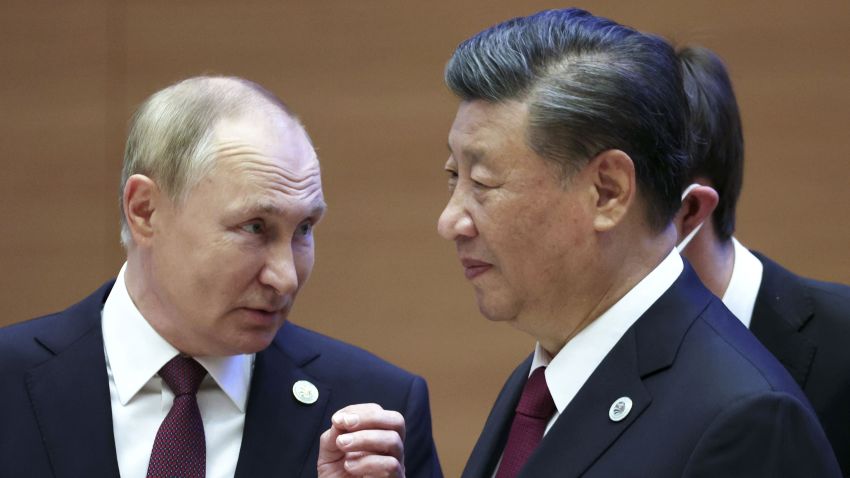Since Russia invaded Ukraine in late February, observers have been keeping a close eye on China’s reaction to determine how much support, whether diplomatic, economic or even military, Beijing might lend its isolated partner. After all, Russian President Vladimir Putin launched the invasion just weeks after a visit to Beijing, where he met with Chinese President Xi Jinping and signed a joint statement declaring that “the friendship between the two states has no limit.”
Just what that would mean in practice, however, remained vague and the subject of much speculation. In the months that followed, as the U.S. and its European allies began to pile economic sanctions on Russia—and plow weapons and other military assistance into Ukraine—there were still some fears that Beijing might help Moscow cushion the financial blow and even supply weapons to help the Russian war effort.
Those fears proved to be relatively unfounded. China has largely enforced the Western sanctions and has not been forthcoming with military assistance. But Xi and high-level officials in the Foreign Ministry adopted a narrative framing of the war and its causes that aligned with Russia’s justifications for the invasion, blaming Washington’s unilateralism rather than Moscow’s neo-imperialism for the conflict. That diplomatic support has offered a much-needed lifeline to Putin in the face of Western efforts to make him a global pariah.

